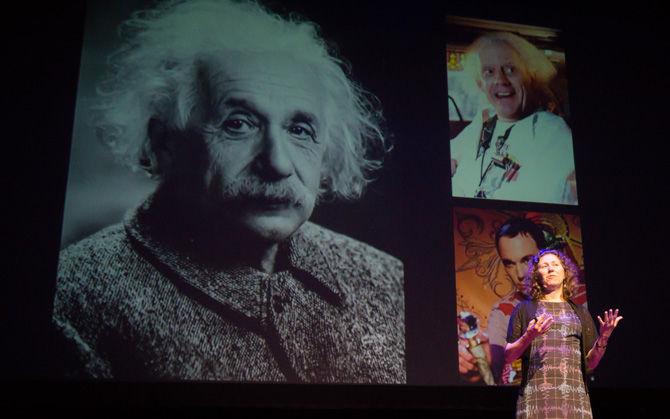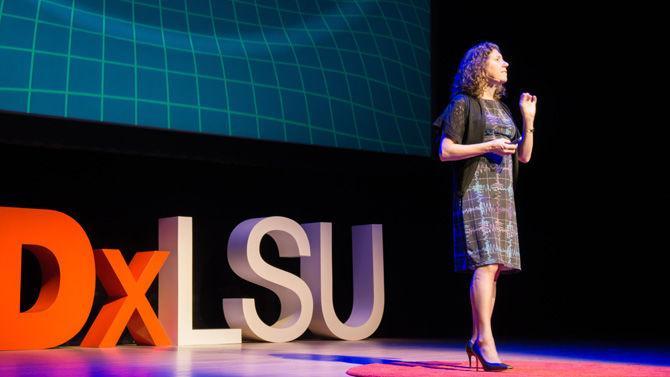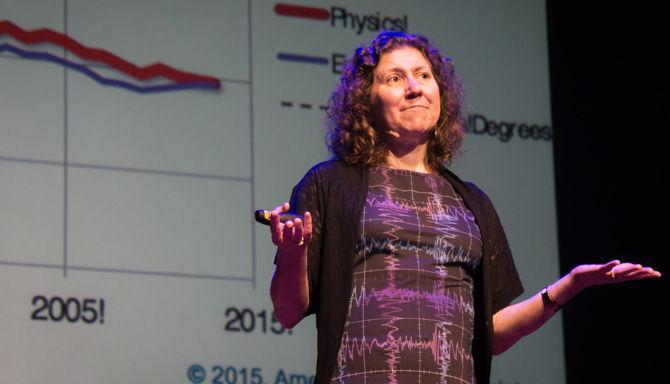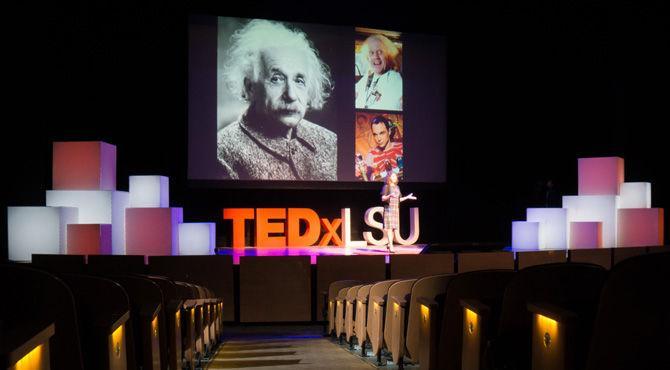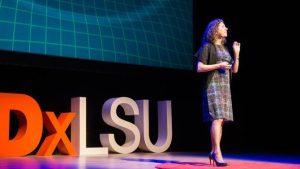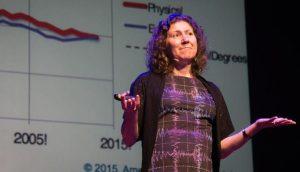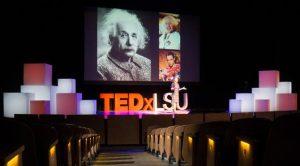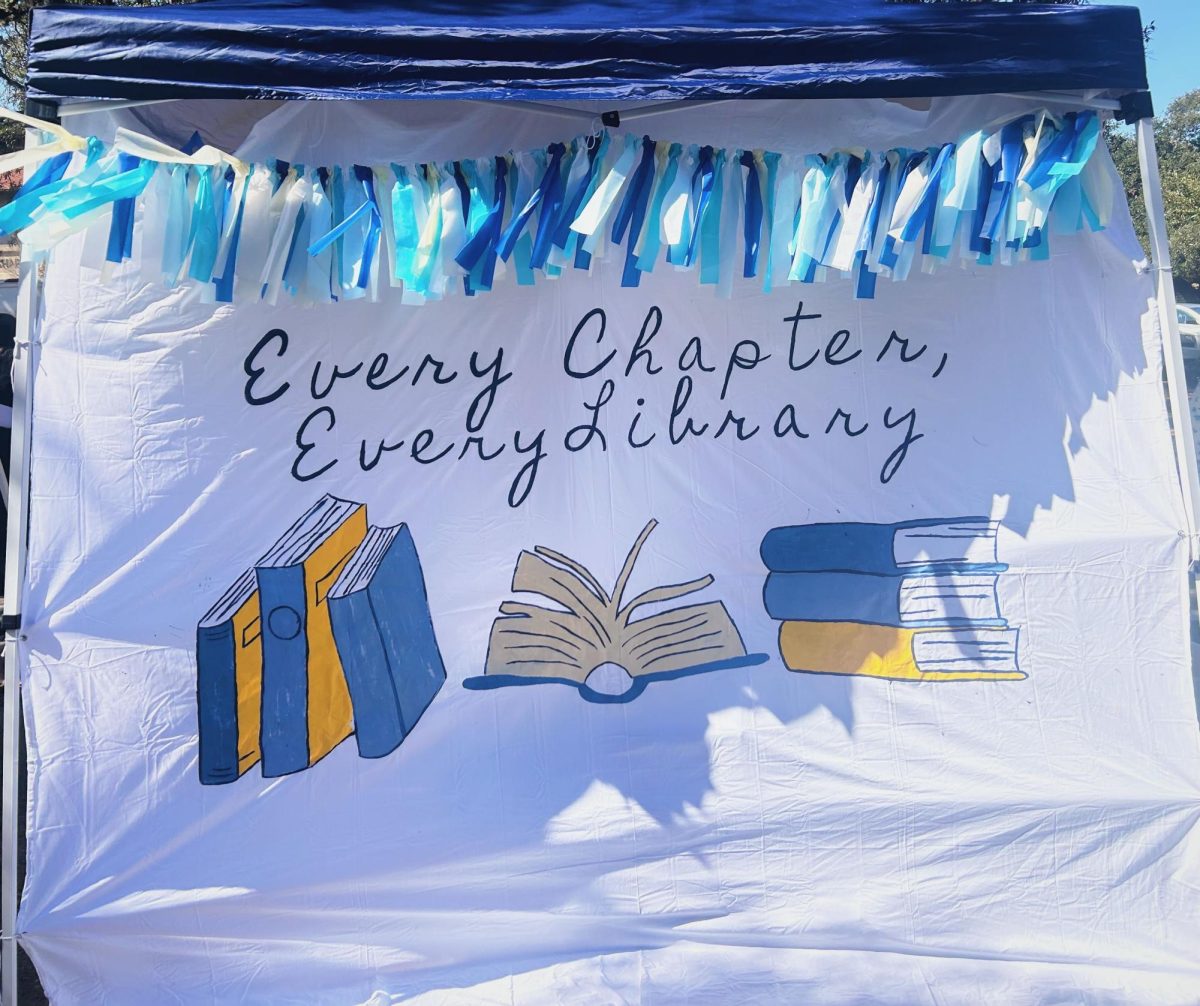When Argentina native Gabriela González entered her college career, she immersed herself into the ever-expanding universe of physics and astronomy. Now, after decades of work and research, she received an LSU Boyd Professorship as well as the 2019 SEC Professor of the Year award for her world-renowned research on gravitational waves.
The designation of Boyd Professor is LSU’s “highest and most prestigious academic rank” and is only awarded to faculty who have achieved national and international recognition for outstanding research, teaching or creative achievements. González received the professorship along with Willis Delony, an LSU Virginia Martin Howard Professor of Piano & Jazz Studies.
“González is a renowned researcher and highly sought spokesperson for science,” said LSU College of Science Dean Cynthia Peterson in her nomination letter for González. “These recognitions, along with her sustained energy and continued leadership, attest to the extremely broad impact that Gabriela González has had nationally and internationally.”
While making marks within the University, González also became the second University professor to ever receive the SEC Professor of the Year Award, which is given annually to one SEC faculty member whose record places them among the elite in higher education. In recognition of the honor, the SEC provided González with a $20,000 honorarium and presented her with the award in May at the SEC Awards Dinner.
González is a leader in gravitational wave research and served as the global spokesperson for the Laser Interferometer Gravitational-Wave Observatory Scientific Collaboration. The LIGO facility is outside the Baton Rouge bedroom community of Livingston and the project, which involved more than 1,000 scientists around the world, became the first to record the waves of a black hole in 2015, proving scientist Albert Einstein’s century-old calculations. In 2017, three LIGO leaders received the Nobel Prize in Physics for the organization’s work, including LSU adjunct professor and MIT professor Rainer Weiss.
González focuses her research on LIGO instrument development and LIGO data calibration and diagnostics, which are critical to increasing the astrophysical reach of data analysis methods. She helped make the worldwide announcement that gravitational waves had been discovered and has since been elected to the National Academy of Sciences, a private agency that sometimes advises the federal government on scientific and technical matters.
González delivered the 2019 LSU commencement speech as well as a speech at the fifth annual TEDxLSU event in March 2017. The theme was “Chain Reaction,” highlighting the domino effect of an idea or experience sparking another. González spoke about the process of g-wave discovery and another small number the audience should be looking at if they want to continue scientific innovation — the small number of women working in physics.
“Do we really need more women in science?” González asked the audience. “Yes we do. Science is about questions and answers … We want women because we want the best people doing the questions and answers. Women are not better than men at this, but men are not better than women either.”
González studied physics at the University of Córdoba in Argentina, where she earned a college physics degree. She came to the U.S. to pursue and attain her Ph.D. from Syracuse University, and her doctorate focused on Brownian motion applied to LIGO detectors. Her work on gravitational waves detection took her to universities across the U.S. including MIT and Penn State before joining the faculty at LSU in 2001.



